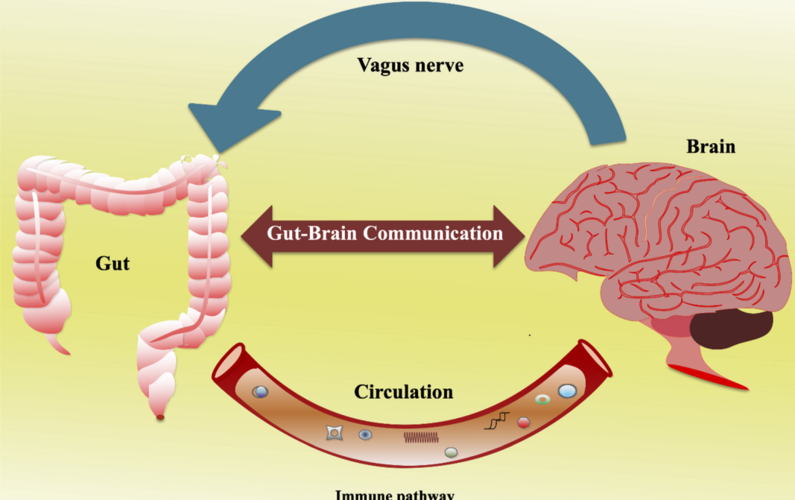In recent years, the scientific community has delved deeper into understanding the intricate relationship between the gut and the brain, leading to groundbreaking insights into how our digestive health directly influences our mental well-being. Often referred to as the “gut-brain axis,” this bidirectional communication system not only underscores the importance of gut health in maintaining mental balance but also opens up new avenues for treating mental health issues through dietary and lifestyle changes.
Understanding the Gut-Brain Axis
The gut-brain axis is a complex network of neural, hormonal, and immunological signaling pathways connecting the gastrointestinal tract and the central nervous system. This connection is so profound that the gut is often called the “second brain,” housing over 100 million nerve cells that govern digestion and are in constant communication with the brain.
Dr. Laura Rueda, a neurogastroenterologist, explains, “The gut-brain axis plays a crucial role in monitoring and integrating gut functions as well as linking emotional and cognitive centers of the brain with peripheral intestinal functions.” Emerging research suggests that this axis influences everything from our mood and stress levels to how we process information and make decisions.
The Role of Gut Microbiota in Mental Health
Central to the gut-brain axis is the gut microbiota, the vast community of microorganisms living in our digestive tracts. These microorganisms not only help digest food and fight off infections but also produce numerous neurochemicals that the brain uses for regulating mood, such as serotonin and dopamine. In fact, it is estimated that the gut produces about 95% of the body’s serotonin, a neurotransmitter that contributes to feelings of happiness and well-being.
Studies have shown that imbalances in gut microbiota (dysbiosis) can be linked to a variety of psychological and neurological conditions, including depression, anxiety, and even autism. Dr. Samantha Greene, a psychologist specializing in mood disorders, notes, “There’s growing evidence suggesting that by modulating gut microbiota through diet and probiotics, we can have a significant impact on the mental health of individuals.”
Improving Gut Health to Boost Mental Well-being
Diet and Probiotics
Diet plays a pivotal role in maintaining a healthy gut microbiota. Consuming a balanced diet rich in fiber, fruits, vegetables, and fermented foods can help nourish beneficial gut bacteria and restore balance, which in turn can enhance mood and emotional health. Probiotic supplements and foods like yogurt, kefir, sauerkraut, and kimchi introduce beneficial bacteria into the digestive system, potentially reducing symptoms of depression and anxiety.
Prebiotics and Gut Health
In addition to probiotics, prebiotics—fibrous compounds found in foods like garlic, onions, and bananas—serve as food for beneficial bacteria and can further improve gut health. Integrating prebiotics into the diet supports a healthy gut microbiota, fostering an environment that can positively impact mental well-being.
9 Fermented Foods for Improving Ulcerative Colitis and Gut Health
Lifestyle Changes
Regular exercise, adequate sleep, and stress management are also vital components of maintaining both gut and mental health. Physical activity can stimulate the growth of beneficial gut bacteria and also release chemicals in the brain that improve mood and reduce stress. Moreover, engaging in regular exercise helps to regulate the body’s stress hormones, such as cortisol, which can negatively impact gut health when levels are chronically elevated. Similarly, ensuring sufficient sleep each night supports the repair and regeneration of cells within the gastrointestinal tract, enhancing the overall function of the gut-brain axis. By prioritizing these lifestyle factors, individuals can create a healthier environment for gut microbes, which in turn supports a more balanced mental state and stronger emotional health.
The Gut-Brain Connection and Mental Well-being
The link between gut health and mental well-being is a compelling aspect of modern medical research, revealing that taking care of our gut through diet, lifestyle changes, and medical interventions can significantly influence our mental health. As we continue to uncover more about this connection, the potential for new treatments and preventive measures that harness the power of the gut-brain axis will likely transform approaches to mental health care. By fostering a healthy gut, we not only improve our digestive health but also pave the way for enhanced emotional and psychological resilience.


